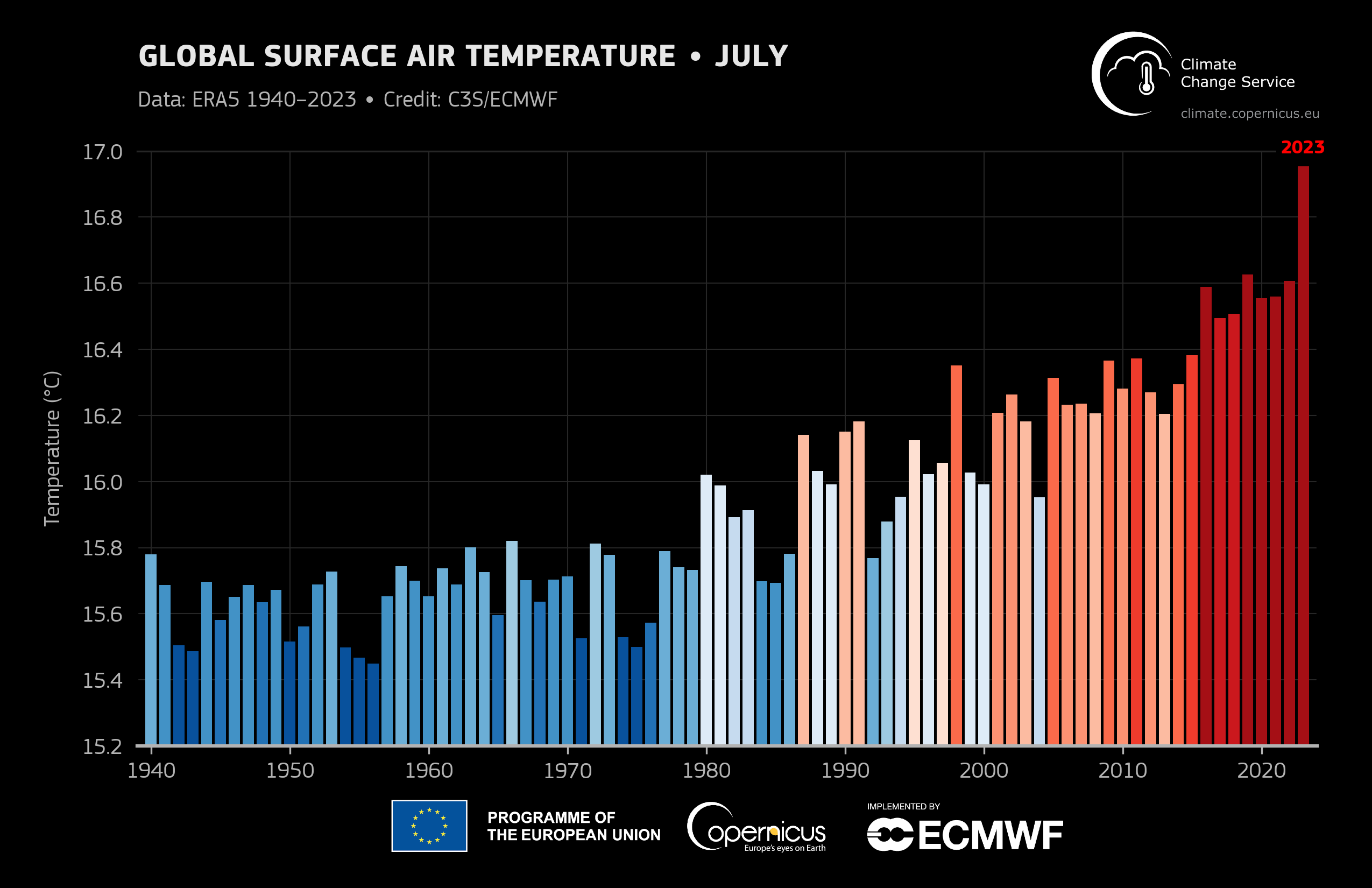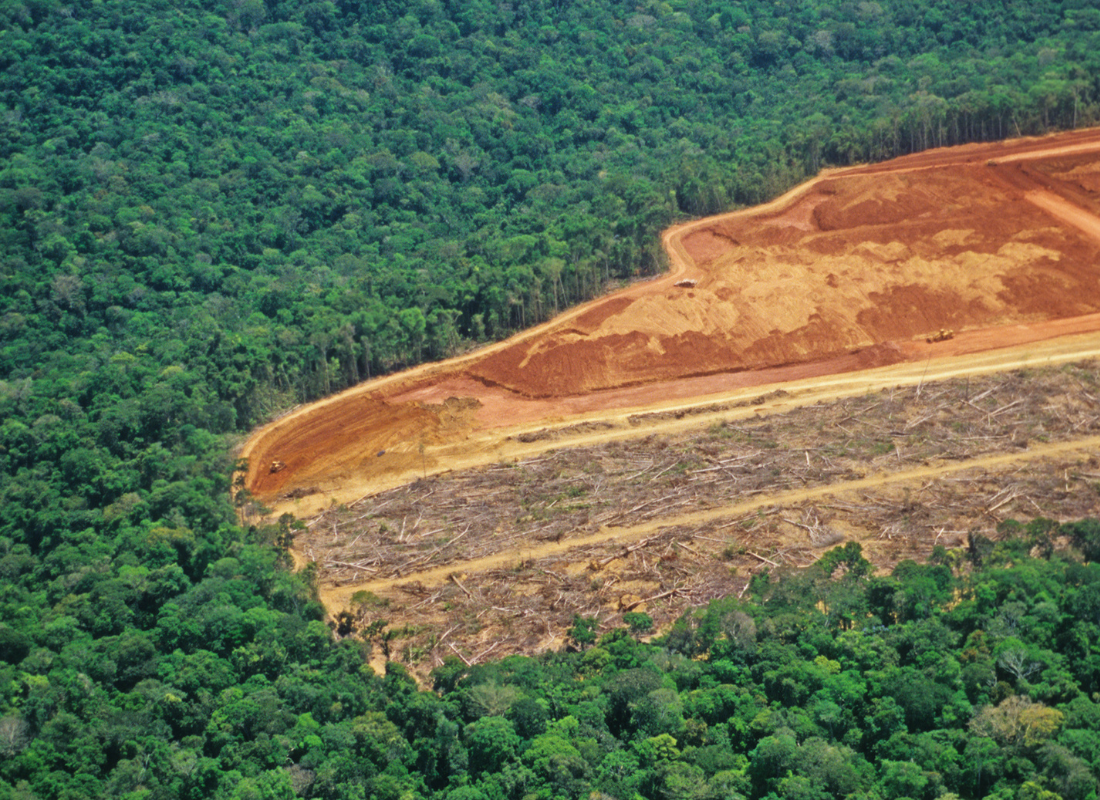
The year 2023 has etched its place in history as an alarming milestone in our planet’s climate narrative. From scorching heat waves to unprecedented temperature records, it stands as the hottest year on record.
This article delves into the various facets that contribute to this climatic anomaly, exploring the scientific insights, impacts on ecosystems and societies, and the urgent need for global climate action.

Scientific Data and Temperature Records
As the world grapples with the consequences of climate change, the scientific community continuously monitors global temperatures to understand the evolving climate patterns. In 2023, the data collected from various meteorological agencies and research institutions unequivocally point to a year of extreme heat.
The National Oceanic and Atmospheric Administration (NOAA), NASA, and other international agencies report that 2023 surpassed previous temperature records, making it the hottest year since systematic record-keeping began. This information is derived from a network of ground-based stations, ocean buoys, and satellites, providing a comprehensive view of the Earth’s climate.

Data from Copernicus
Contributing Factors to Record Heat
A myriad of factors contribute to the elevated temperatures observed in 2023. Human-induced climate change, primarily driven by the accumulation of greenhouse gases in the atmosphere, stands as a major player.
The burning of fossil fuels, deforestation, and industrial activities release carbon dioxide (CO2) and other heat-trapping gases, intensifying the greenhouse effect.
Natural phenomena, such as El Niño and La Niña events, also influence global temperatures. While El Niño tends to elevate temperatures, La Niña typically has a cooling effect.
In 2023, the absence of a strong La Niña and the persistent influence of El Niño-like conditions exacerbated the warming trend.
 Deforestation contributes to the increase of greenhouse gases
Deforestation contributes to the increase of greenhouse gases
Impacts on Ecosystems

The rising temperatures have profound implications for ecosystems around the world. From the polar ice caps to tropical rainforests, no region remains untouched by the impacts of the scorching heat.
In the Arctic, the accelerating rate of ice melt is alarming. Glaciers and ice sheets are losing mass at unprecedented rates, contributing to sea-level rise and disrupting marine ecosystems. The delicate balance of polar ecosystems is under threat as species dependent on ice, such as polar bears and seals, face dwindling habitats.
Conversely, in tropical regions, extreme heat is fueling more intense and frequent heat waves, affecting biodiversity and stressing ecosystems. Coral reefs, already under threat from bleaching events, face additional stress due to elevated sea temperatures.
The interconnectedness of ecosystems underscores the urgency of addressing climate change to preserve global biodiversity.
 Glaciers are melting at record speed
Glaciers are melting at record speed
Impact on Agriculture and Food Security
The record-breaking heat of 2023 has cascading effects on agriculture and food security. Prolonged heat waves and altered precipitation patterns can lead to crop failures, affecting staple food production. Extreme temperatures can also disrupt pollination processes and reduce crop yields, jeopardising global food supplies.
Smallholder farmers, particularly in vulnerable regions, bear the brunt of these changes, facing increased risks of food insecurity. Climate-resilient agricultural practices and the development of heat-tolerant crop varieties become imperative to mitigate the impact on food systems.
Social and Economic Ramifications

The pervasive heatwaves of 2023 extend beyond environmental consequences, significantly impacting human societies. Increased temperatures amplify health risks, with vulnerable populations facing a higher likelihood of heat-related illnesses.
The strain on energy systems for cooling and heightened demand for water exacerbate the challenges faced by communities already grappling with climate-related issues.
Economically, the toll is substantial. From disruptions in supply chains due to extreme weather events to the increased costs of healthcare associated with heat-related illnesses, the economic ramifications of the hottest year on record reverberate globally. Addressing climate change becomes not only an environmental imperative but also an economic necessity.
Global Responses and Climate Action
The record heat of 2023 underscores the urgency of global climate action. The international community must collaborate to curb greenhouse gas emissions, transition to renewable energy sources, and implement sustainable practices.
The Paris Agreement, a landmark accord aimed at limiting global temperature rise, becomes more critical than ever.
Individuals, businesses, and governments play pivotal roles in mitigating climate change. Accelerating the adoption of renewable energy, enhancing energy efficiency, and implementing policies that promote sustainable practices are essential steps.
Additionally, investing in climate resilience and adaptation measures helps communities cope with the unavoidable impacts of a changing climate.

Conclusion: A Call to Action
The hottest year on record in 2023 serves as a stark reminder of the pressing need for immediate and decisive action to address climate change. The scientific evidence, impacts on ecosystems and societies, and the economic toll highlight the interconnected nature of climate issues.
As we navigate the challenges posed by the warming climate, a collective commitment to sustainability, conservation, and emission reduction is paramount.
The record-breaking heat of 2023 should serve as a rallying cry for individuals, communities, and nations to unite in the pursuit of a more sustainable and resilient future for our planet.
The time to act is now, for the consequences of inaction are felt not only in the present but will resonate for generations to come.




